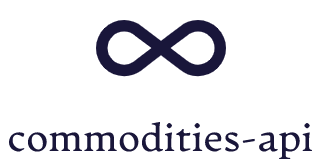A Comparative Analysis The Dutch TTF gas contract has been around for a long time, but it is still used today. This article compares it to other gas contracts.
In the intricate web of global energy markets, gas contracts play a pivotal role in shaping economic landscapes, influencing industries, and powering households. As the world grapples with the dynamics of energy supply and demand, delving into the specifics of gas contracts becomes more crucial than ever. This article takes you on a comprehensive journey through the realm of gas contracts, with a spotlight on the Dutch TTF Gas contract and its comparative analysis with other gas contracts.
Within the world of gas contracts, two distinct trading strategies emerge: the spot market and the futures market. The spot market operates in real-time, reflecting immediate supply and demand dynamics. Its ability to offer real-time pricing caters to those seeking short-term gains and swift transactions. Additionally, the spot market serves as a tool for risk management, allowing entities to navigate price volatility efficiently. Fortunately, you can get more information about this using this Commodities API.

Gas Contracts: Navigating the Basics
Before we plunge into the intricacies of Dutch TTF Gas, let’s lay the groundwork by understanding the fundamentals of gas contracts. These legally binding agreements dictate the terms of buying and selling natural gas, encompassing aspects such as pricing mechanisms, delivery schedules, and volume commitments. In essence, they form the backbone of energy trade, facilitating a structured flow of gas resources across borders and markets.
Comparing Dutch TTF Gas with Oil-Indexed Contracts
As we shift our focus to the comparative analysis, it’s essential to explore the differences between Dutch TTF Gas contracts and the conventional oil-indexed contracts. The traditional approach ties gas prices to oil prices, creating a linkage that has both pros and cons. While it provides a degree of stability, it can also lead to price discrepancies during periods of oil price volatility.
Price volatility is a persistent challenge in the energy sector, and it profoundly impacts gas contracts. The linkage between gas and oil prices can result in fluctuating costs for consumers and businesses alike. This is where the unique attributes of Dutch TTF Gas contracts come to the fore. By decoupling from oil prices, these contracts offer a more consistent pricing mechanism, mitigating the impact of oil price turbulence.
Commodities API
The World Bank and other financial data sources, such as banks, are where this API gets its commodity data from. Initially, commodity rates were provided by banks and the stock market using the Commodities-API, a simple, lightweight Open-Source API.
This API can supply real-time commodity data with a frequency of up to every 60 seconds and a precision of two decimal places. Just a few of the capabilities include providing exchange rates for practically any good, converting between single currencies, offering time-series data, and generating volatility statistics.
By simply providing your specific Access Key as a query argument to one of the 5 main API Endpoints, you can access a range of data. Below is an example of the “Latest Rates” endpoint:
{"data":{"success":true,"timestamp":1693234920,"date":"2023-08-28","base":"USD","rates":{"TFMIF24":0.018191740949609},"unit":{cubic meter}}}
The answer indicates that one dollar is equal to 0.018191740949609 cubic meters of Dutch TTF Gas Monthly in January 2024 (TFMIF24).
This API is simple to use and gives accurate data. Only register if you want to stay up to date on news on commodity pricing. After logging in, pick the base currency, symbols, and endpoint that best meet your requirements. Click “run” at the very end to start the API call. This API will immediately reply with all the details you require!
The Commodities API collects data on commodity prices every minute from over 15 reliable data sources. Among the sources are financial data suppliers and banks. Any quantity can be converted between any two commodities, any two currencies, any two commodities, and any other two commodities using the same API endpoints.


